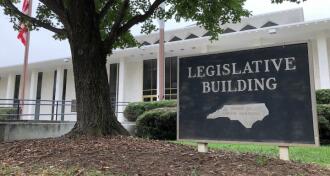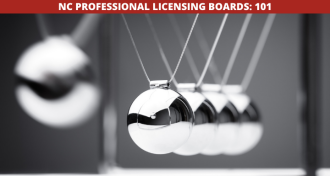Receiving notice of a complaint or investigation from a licensing board almost always is traumatizing.
Responding can be challenging because the mere submission of a complaint can trigger a strong emotional response and because the process presents a risk that action adversely affecting the licensee may be taken. This article focuses on understanding the role and processes of licensing boards, which can help manage this challenge.
Professional and trade licenses are valuable. They represent a certification by the State that the party to whom the license is issued has demonstrated certain levels of competence and expertise in a particular area and that the person will conform to the standards of conduct established for the area. Obtaining a license generally requires a substantial investment of time, effort, and money. Return on this investment is realized, in part, through opportunities secured through public confidence in the license.
Most licensing boards have the power to act independently. However, most inquiries from boards begin with a complaint. Each board has designed its own procedure for investigating and handling complaints. The procedures can be found on the board's website and in Title 21 of the North Carolina Administrative Code.
Although different, the procedures tend to share some features in common. The board's investigation usually will involve gathering information and input from both the complainant and the licensee. Some boards have staff members whose primary responsibility is investigating these matters. After the investigation, boards have the power to dismiss a complaint without taking any action if this is warranted. When dismissal may not be warranted, many boards provide for formal settlement conferences. These generally are used to communicate directly with a licensee for the purpose of resolving what may appear to be misunderstandings or disputes. If the issues presented cannot be resolved through settlement, then the boards have a process by which a formal hearing is convened and held, after which the board decides on the proper course of action. Formal hearings do not occur often. They usually take place only when a board and licensee are diametrically opposed and the issue presented involves the potential revocation or suspension of a license.
After a board makes a decision, a licensee normally has the right to obtain judicial review of the decision through Article 4 of the North Carolina Administrative Act. The scope of this review is limited because the court gives some deference to the decision of the board. This makes sense because the judge is hearing the matter on appeal often is not as familiar with the profession as the licensees that likely comprised the initial board that made the decision. As such, the board's decision will not usually be overturned unless there has been an error of law or violation of procedure, the decision is not supported by the facts, or the board has acted arbitrarily or capriciously in making the decision. Because the scope of review is limited, a licensee seeking judicial review of a board decision must necessarily temper expectations for changing the decision of the board. Additionally, because courts do not often overturn board decisions, it is critical to put forth a strong defense during the initial investigation and hearing before the board.
So, what does all of this mean if you, as a licensee, receive notice from a licensing board that a complaint has been submitted against you or you are under investigation:
- Understand that the board is required to investigate the complaint; try not to take the notice personally.
- Treat the notice with an appropriate sense of urgency; respond in a timely manner.
- Gather all of the information needed to respond to the board; keep in mind that the board sees only one side of the story in the complaint.
- Contact an attorney to assist in preparing the response.
- In the response:
- Acknowledge the board's responsibility to the public and profession or trade.
- Address the facts and allegations directly, providing supporting material if helpful.
- If the complaint is unfounded, explain why and seek dismissal.
- If an error has occurred, accept responsibility, explain how it occurred, and express contrition by committing to the learning gained from the experience.
- Cooperate with the board in both the investigation and resolution of the issues.
- Seek to resolve issues through settlement, if possible.
A professional or trade license is an investment that should be protected. Respecting the responsibility of the licensing board that issued the license is fundamental to doing so, especially when a licensee is responding to a board complaint or investigation.








